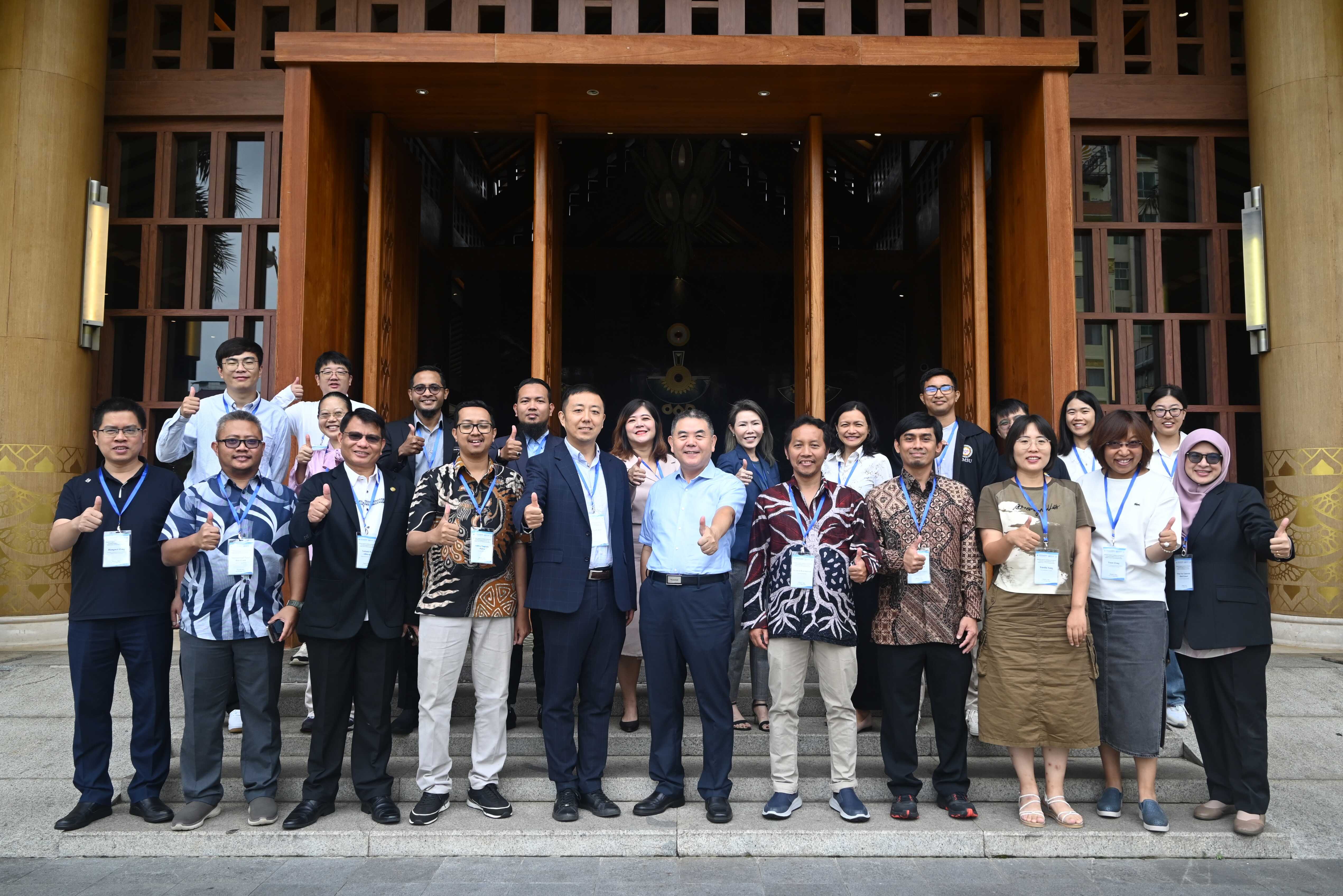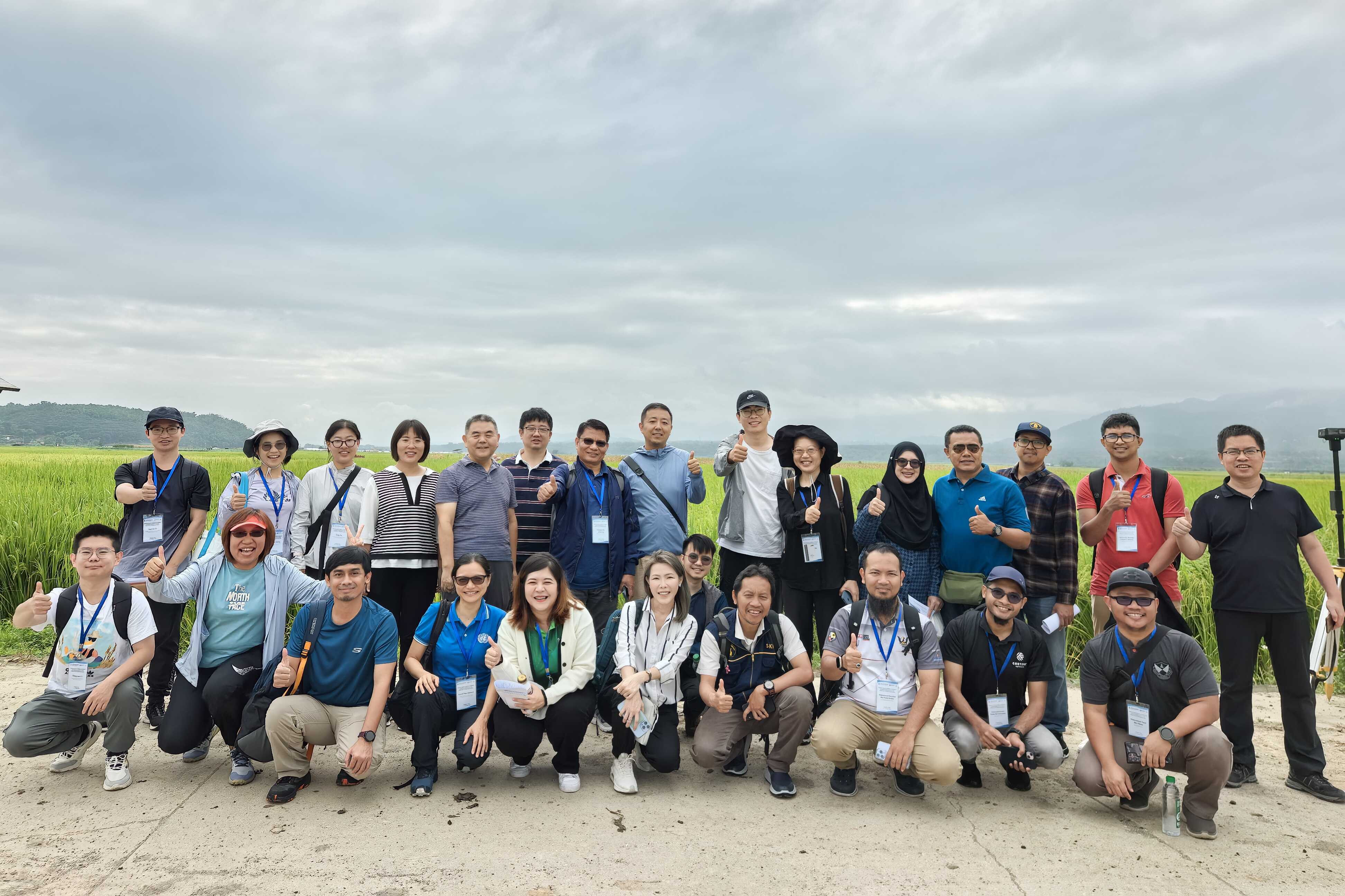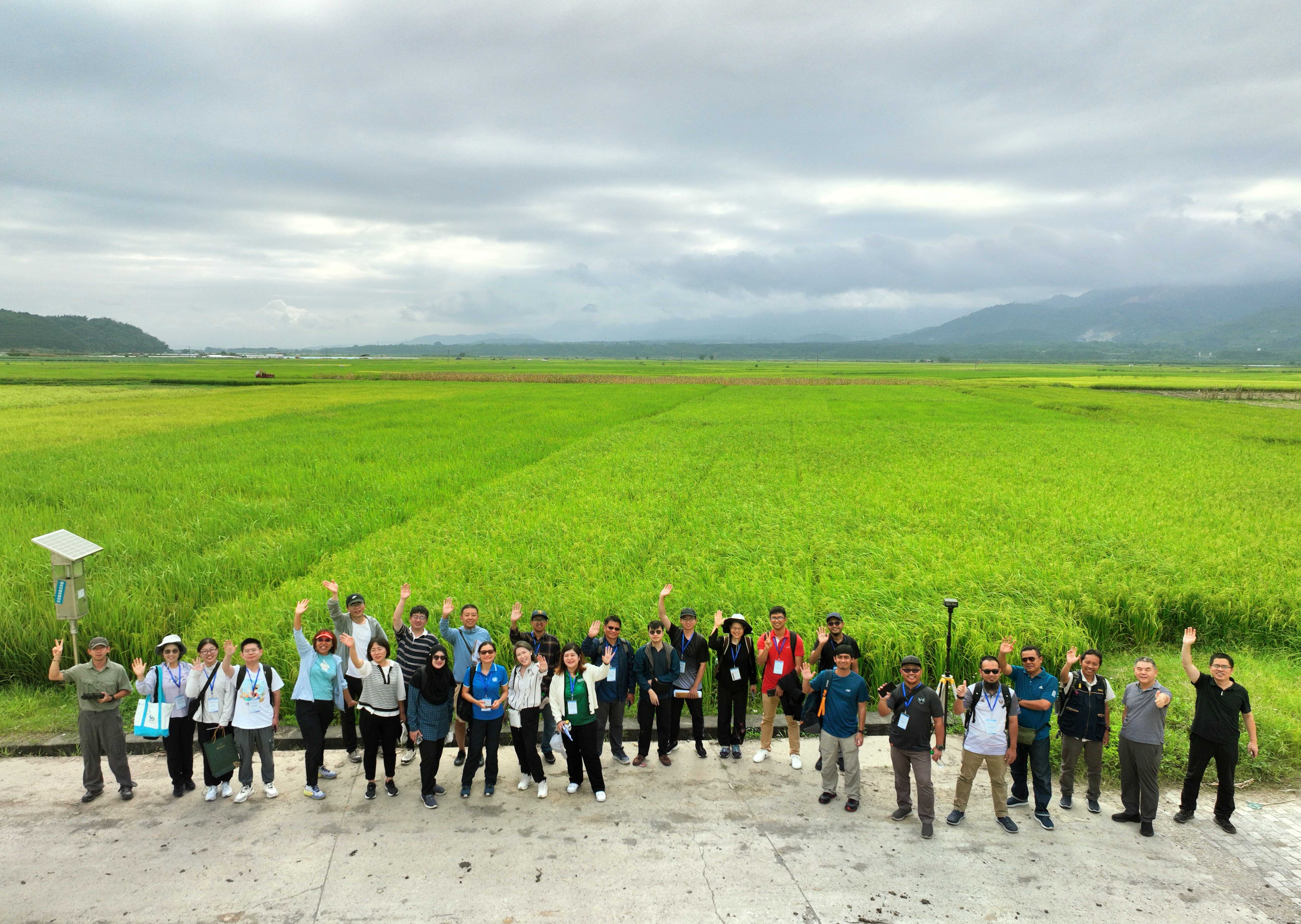Regional Capacity Building Workshop on Geospatial Applications for Crop Biodiversity Held in Yunnan
The "Regional Capacity Building Workshop on Geospatial Applications for Crop Biodiversity" was held in Mangshi, Yunnan Province on August 21-23, 2024. The workshop was co-hosted by the United Nations Economic and Social Commission for Asia and the Pacific (UNESCAP) and the Aerospace Information Research Institute of the Chinese Academy of Sciences (AIRCAS), with the field demonstration supported by Yunnan University.
The workshop aims to facilitate knowledge sharing, capacity building, regional networking and collaboration among universities and government agencies in countries in Asia and the Pacific to enhance their capacities in utilizing innovative space applications for crop diversity monitoring and sustainable agriculture.
The workshop gathered 30 representatives from various countries, including Executive CHEN Haitao from the Chinese Academy of Sciences, Chief WANG Keran from UNESCAP, and experts and scholars from institutions such as AIRCAS, China Agricultural University, Fuzhou University, the University of Hong Kong, UNESCAP, Indonesia’s National Research and Innovation Agency (BRIN) and Brawijaya University, Malaysia Space Agency and Universiti Putra Malaysia, the Philippine Space Agency and Mariano Marcos State University, Japan Aerospace Exploration Agency (JAXA) and the University of Tokyo, and the Ministry of Agriculture of Thailand, among others.
This regional workshop, focused on the initiative "Promoting Crop Biodiversity through Innovative Space Applications (CropBio)", underscored the program’s role within the Asia-Pacific Plan of Action for Space Applications for Sustainable Development (2018–2030). The CropBio program aims to enhance the capacity of Asia-Pacific countries in addressing agricultural sustainability challenges. Executive CHEN Haitao and Chief WANG Keran delivered the welcome and opening speeches.
Participants reviewed the project’s progress, shared experiences, and exchanged insights on cutting-edge methods for crop diversity with leading experts. The three-day workshop also featured joint field demonstrations and the development of a protocol for in-situ crop diversity survey. These activities were designed to enhance the technical capacities of participants from selected South-East Asian pilot countries through technical demonstrations and hands-on exercises.
Prof. WU Bingfang delivered a keynote speech titled " Crop and Cropping Diversity for Zero Hunger", highlighting that food security is a global challenge and that crop and cropping diversity could offer a nature-based solution for the future of food security and nutrition. He proposed the importance of a transdisciplinary, multinational co-designed comprehensive analysis framework to establish crop diversity assessment methodology applicable to different regions.
Prof. ZENG Yuan provided an update on the CropBio project and the introduction of the in-situ protocol. Assoc. Prof. ZENG Hongwei detailed a novel remote sensing method for monitoring rice planted area at the national scale. Dr. ZHENG Zhaoju showcased the preliminary results of crop diversity surveys and remote sensing monitoring in pilot study sites in Yunnan.
Representatives from Indonesia, Malaysia, and the Philippines presented their respective study sites and plans for monitoring crop diversity. Following the presentations, all participants visited a typical rice-growing area in Zhefang Town, Mangshi for joint fieldwork. During the fieldwork, the CropWatch team demonstrated the use of the GVG and FieldWatch applications for conducting crop type and yield surveys. They explained how to set up the plots, and provided hand-on training with the equipment used for measuring spectra and other parameters.
The CropBio project team also worked together for revising the field survey protocol draft, aiming to establish a standardized in-situ protocol for crop diversity. During the meeting, they also exchanged views on monitoring methods, clarified project timelines, and outlined future work plans. The next CropBio meeting is scheduled to take place in Indonesia next year, with a focus on monitoring progress at the national level and developing the crop diversity monitoring protocol.






News & Events